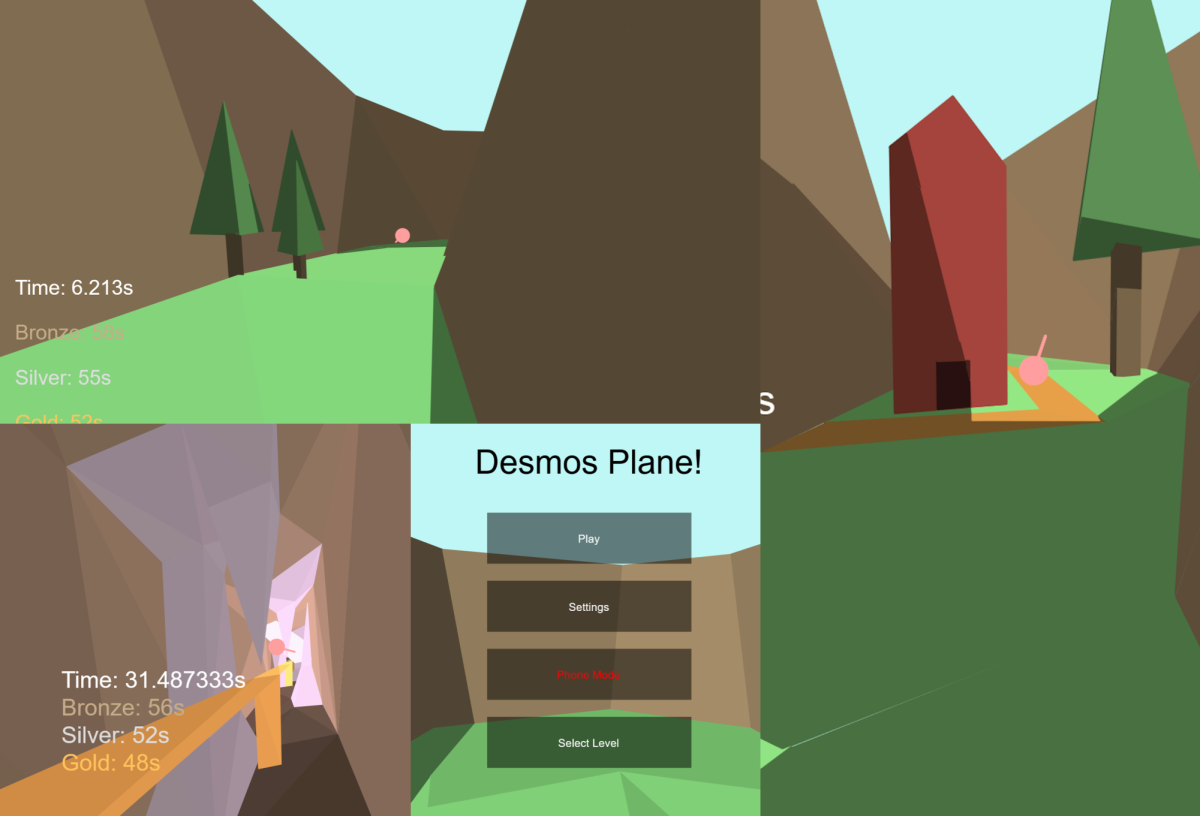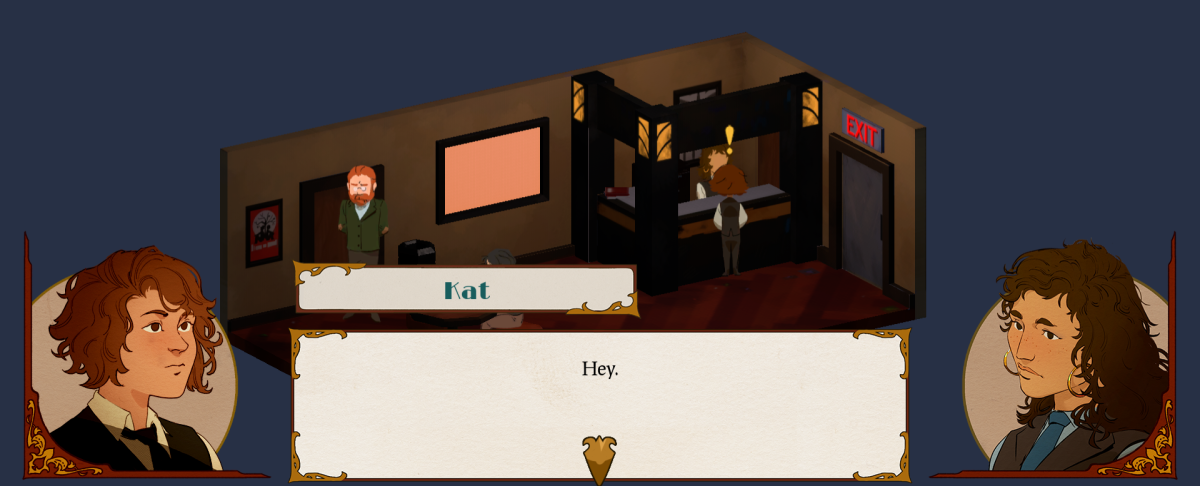On the far edge of a small port town, where the flags of merchant ships painted the horizon with rainbow banners and winds from the north carried salt off the white-tipped waves, there lived a young toymaker. His wooden storehouse sat tucked far from the bustling streets and docks, closer to the fields where the scent of sheep and fresh grass overtook the sea breeze. Its roof was built of hand-split shingles, perched above an attic bedroom and a workshop in the back, with tools hung up and boxed away in neat rows. A stooped gable that hung over a thick oak door hid shelves upon shelves stuffed to the brim with little wonders: wooden dolls and model ships, carved from aspen and basswood; hand-painted picture frames, music boxes with dancers that spun, and tin toys you could wind up and watch wobble across a tabletop. The toymaker was never a skilled salesman, his bulky figure far more substantial than his meek manner could compensate for, but his customers never left empty-handed. They’d follow him through those slanted shelves and the glowing motes of dust as he stumbled and stammered, and their breath would still as their eyes settled upon one of his darling trinkets. The toymaker knew no greater joy than the wide smiles on his customers’ faces as he accepted their coins and sent them on their way, new treasure in hand.
Besides the storefront, his days were spent entirely in the workshop alone, winding wires and sanding sculptures, with little time for anything but a friendly trip to the bar with old friends. Never had he longed for a lover before, but as his friends collected rings on their fingers and his collected only scars, he began to notice the stillness of his attic room and the silence in the kitchen, broken only by the crackle of the furnace which he lit at day’s end. His friends urged him to find a wife; it wasn’t as if he was yet out of his prime or unfit to provide. But the toymaker would only sigh. They all knew he’d never been the sociable type— after all, he hardly spoke, preferring to entertain himself with his wooden flute often enough that the larks and the jays learned to whistle back his tunes.
One spring night, when the breeze was cool and sweet, the toymaker pulled out a ladder from his workshop and sat on the roof of his wooden home. Behind him, the town hummed itself to sleep while the edge of the meadow shimmered in front of him, a sprawling field of sea foam green that whispered softly, its color broken only by the trickling brook that shined of starlight. As he lay there, swallowed by the vastness of the heavens, his eyes found purchase upon the stars that glimmered, shooting past the full moon and vanishing with a wink. A solemn gaze stilled the toymaker’s face as he clasped his hands and began to pray:
“Oh heavens, grant me a soul to spend the rest of my days with. Let their voice be as sweet as the songbirds nesting up high, with words as warm as the sun that feeds the fields. I will dedicate my heart to them, so let them love me forever: a thousand years will their heart belong to me!”
The moon blinked in return; his pleas had reached the creatures of the sky. With hands dark and blue, they cast down a light. It streaked through the sky and landed with a flash beyond the brook. The toymaker rushed through the tall grass and leapt over the starlight water, overalls wet with mist and dew. There, cupped in a crater of fresh dirt and burning embers lay the fallen star.
Its round body was indistinguishable from the rosy light it emitted, and the air around it hummed with ethereal energies. As he knelt closer to its heavenly heat, the star whispered to the toymaker, crystal tones tickling the curve of his spine: “Far from earthly I may be; still, I yearn for more. Build me a body, and I will live with you as long as you wish.”
Scooping the star from the loose dirt, the toymaker ran to his workshop, where he laid the star in a nest of fleece and began to build. He sculpted a body of tin, polished until silver. The cage for its structure and heart he fashioned from cast iron. Joints were hidden masterfully, and he commissioned the most beautiful blue glass eyes he could afford. He fastened hair and lashes of carded fleece to its head, curled into feathery white waves and positioned with the utmost delicacy, and he painted the face, petal pink lips and warm cheeks. With nothing else, he dressed it in cotton first, but scorned himself for the plain cloth he’d provided. So, the toymaker searched for clothes of all kinds: a old man’s silk shirt, soft though loose at the seams, a sailor’s dungarees that his wife had sewn and he’d never worn; a young woman’s lapis scarf, fluttering on a fencepost; and a careless boy’s shoes, which he’d outgrown and left by the store steps.
The star often told the toymaker it did not care if its joints were obvious or face stiff, and it had no need for beautiful clothes either— all it needed to fulfill its promise was a body to hold the toymaker with, to watch him work and to tend the hearth. But there was wonder in the star’s voice as the toymaker spoke of the town’s ports growing full, his customers’ kind words, and the friends he still visited every few days. The star marveled at the world from below: the vibrance of the trees in spring, the purity of the snow in winter’s passing, and the creatures big and small it had witnessed upon its fall. With steady resolve, the toymaker promised a body that could wander the earth as it pleased, and the face of man so beautiful, all would believe in the star’s humanity. He played his wooden flute, and taught the star, with clumsy steps, how humans sang and danced. The star would sing in turn, hesitant at first, but sweet as a songbird. It sang of the earth’s beauty, of the creatures of heaven and the stars that spun in place and fell, granting wishes as they burned their heavenly grace, and it sang, with eager whispers, of its longing for its new body and of the years within that it hoped to spend by the toymaker’s side.
In three summers’ time, the star’s body was done. Holding it with calloused palms, the toymaker placed the star in the hollow of the automaton where its heart would be and closed its chest. At once, the star rose, legs shaking like a newborn foal, and clasped its arms around the toymaker, a familiar heat filling its metal form. They embraced, able to hold each other as humans did. The star stumbled over itself, grasping every item it could, feeling the stiffness of wooden tools, the feathery fleece of its hair, and the callous palms of its body’s maker. Hand in hand, they danced; the star sang, light blossoming in its bright blue eyes, and the toymaker played his wooden flute, full and clear.
Out into the streets they went, where the secret of the toymaker was for all to behold. The townspeople gathered along the houses and the roads, watching the two with disbelief. The people of the town had never seen a creation so beautiful and alive made of metal; some were even afraid. But there was no denying its gentle gestures and exclamations of wonder, or the tearful smile that crossed the toymaker’s face as he watched the star wave out to the children who ran to greet it with wide eyes and flowers in hand. The shop’s wares seemed to glow even brighter as customers came in and were greeted by the star, and their beloved toymaker only grew happier in the days that followed. Heaven sent, they decided, was the automaton and the star.
The toymaker’s friends were overjoyed. They begged the star to accompany the toymaker on their trip to the bar, where it was greeted with open arms by the toymaker’s friends and their wives, all gathered in celebration of their newfound happiness. They drank and sang, voices off-key but hearts in tune, and the star lept to join in, holding the toymaker’s hand as he watched smiling silence. Over many trips to the bar, the star, as the toymaker had before, noticed their new friends’ matching pairs of golden bands, and the toymaker’s lack thereof: wedding rings, it learned they were called. It also noticed wrinkles at the corners of the toymaker’s eyes when he smiled that weren’t there in years before, and speckles of gray growing in his beard. The star was not naive— if birds could turn stiff and fall from the skies, humans could as well. Stars did not burn forever either.
So, one night, the star urged the toymaker to accompany it on its nightly wanderings. By the stream, the star stopped, and without a word slipped a ring of twine and starlight upon the toymaker’s finger. To the star’s dismay, it did not fit quite right, but the toymaker pulled the star closer, pressing a teary kiss to its brow. He whispered promises of a life spent together, of his heart belonging to the star forever. The star, held close to the toymaker’s chest, heard that steady resolve beating strong and quick, and let itself believe.
But one fateful autumn, the toymaker grew ill. His face was gaunt, and he refused to eat. He spoke of a pain that burrowed deep into his stomach and sent his muscles spasming as he held back horrible moans through gritted teeth. He was resigned to bed, where the star worried itself by the toymaker’s side day after day. It washed his face and sang as sweetly as it could, hoping to alleviate the pain and guilt the toymaker confessed, helpless in his own body. The doctors who visited worried it must have been from the metals and paints the toymaker used. They couldn’t promise any recovery.
The star was beyond itself, knowing its body could be the cause of its lover’s sickened state. Kneeling beside the toymaker’s bed, it pleaded with the toymaker to remove its heart from its chest and let them toss the body far away, to save the star of the guilt it felt. But the toymaker refused.
“I brought you down to earth and promised you all the world’s wonders. How could I
take them away?”
The days turned into weeks, fall into winter. During the days, the star sold the toymaker’s remaining wares, until the shelves were filled with only dust. After that, it would sit out upon the steps and sing a mournful, warbling melody. The townspeople, now afraid, would still walk close and drop coins into the star’s open hands, grief heavy upon their faces. During the nights, the toymaker begged the star to sleep beside him. The loneliness of their hours apart left the toymaker glassy eyed, twisting the ring of twine and starlight upon his finger. So, despite its fears, the star accepted and let itself be held.
One morning, the toymaker did not wake up. The star listened to his chest, but heard only silence. It rushed out onto the streets, and people parted in its wake until it reached the doctor. The toymaker was pronounced dead, and none were as desolate as the star, who cried pale light from its glass eyes. With the toymaker in its arms, it whispered to his still chest:
“The stars all dance, lost in a sea of endless night. Alone, I heard your wish, and I
prayed that I would be the one to fall. You promised me the world, and I did not know it wouldn’t
be enough. You gave me this body so I may wander and dance, but how can I, knowing it will be
without you?”
The toymaker was buried by the stream, in the same dirt the star had landed upon. The town mourned by his grave, his friends weeping as they left flowers and gifts, but life went on, and too soon, the star was the only one who remained. The world changed. The town was destroyed once, built again, and lasted for a long time after. The cobbled streets were paved over, and the old docks cracked and crumbled into the seas. In generations, people forgot the toymaker, though his creations were passed down from parent to child, or found their ways into antique shops far away, where their craftsmanship was marveled upon.
The star’s body, though beautiful, was not made to last a thousand years alone. It wandered, as years turned to decades, and decades turned to centuries. Most people were loath to approach a body coated in lead. The paint on its face chipped, and its insides began to rust in the rain. As far as it might have traveled, to fields, forests, cabins in the woods and cities carved from marble stone, it always found itself sitting beside the toymaker’s grave again. Slow at first, a melody would rise like the wind, light and steady on the sea of grass that swallowed them both. Head pressed against its lover’s gravestone, it sang of the turns of the seasons, of birds watching their hatchlings fly from the nest, the setting sun, and bones buried in the dirt below. It sang of its body: how its clothes had begun to rot, strings carried away by moths and hair plucked by nesting birds, of its jaw rusting stiff, and its eyes cracking from the cold and heat.
But most of all, it sang of the toymaker – of his dancing figure, free as the waves; his hands, solid and strong, pulling it into his chest and twirling its once beautiful frame; the sound of his flute, the duets they’d compose; of that ring of twine and starlight it hoped still lingered below. The star’s heart glowed as bright as the day it fell, and while its tears of light slowed and its automaton body became still as stone, it sang and sang.
Perhaps, in a thousand years, the star in the automaton’s chest will grow cold, and return to the heavens from where it first fell. People will wander, and find a gravestone, where a rusted metal body sinks into the soft dirt, painted green with moss and springtime buds. Its eyes will reflect the season and the sky, blue and gray and sparkling with lights. Those people will wonder, fingers pressed against the once-smooth tin, tracing across the point of its chipped nose to its rusted cheeks, why such a wonderful creation was made and left here to grow old alone. Tears might bud in the corners of their eyes, unable to place why the sounds of the larks and jays singing from the trees now sound so bittersweet. Most of all, they may hope. Those wanderers with lonely hearts will pray for a love as strong as the love the creator must have had for this creation, and the stars will spin in the sky to the songs of wishes granted in the world below that worships the beauty of spring and fall, the ache of old bones, and love lasting eternal. Stars will continue to fall from the sky, wishes draped in dancing light, and throats that ache with tears yet to be shed will sing until their voices break.
Daphne Komut
Biography: Daphne is a sophomore at OSU, majoring in Creative Writing. Born and from Washington, Daphne grew up surrounded by nature, with a fondness for animals and plants, though they don’t get enjoy nature as often anymore. They’ve been writing short stories and poetry since elementary, but only started taking it seriously in high school. Daphne’s hobbies are playing (and obsessing over) video games, reading comics and books (two recently read favorites are “The Summer Hikaru Died” and “Demian”), and drawing for hours while ignoring important work that needs to be done. They currently have no other published work.
Artist Statement: Whatever I write is often motivated by a yearning to connect with others. I’ve never been a good speaker, so, I’ve turned to written word in many forms to express myself. I’m fascinated by so many things: nature, (a)sexuality, inter-personal dynamics, what we perceive as reality. I feel they are an integral part of our experience as humans. While what I write may not be reality, it can reflect something meaningful onto me and those who read my work. I love twisting bodies, bending light, layering words only to peel them away—so I can find what I really mean.
Published in Volume 144, Storyteller!




